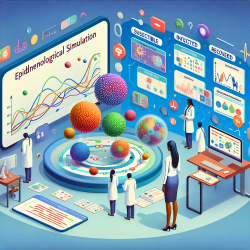Introduction
In today's rapidly evolving technological landscape, Artificial Intelligence (AI) is increasingly being integrated into various fields, including speech therapy. As practitioners in this field, it is crucial to understand the implications of AI, especially in terms of privacy, ethics, and data-driven decision-making. The research article "Rules for Robots, and Why Medical AI Breaks Them" provides valuable insights into these aspects, particularly focusing on the ethical and legal challenges posed by AI in medical contexts.
Key Takeaways from the Research
The article highlights several important points that speech therapists and other practitioners should consider:
- Context-Specific Rules: AI tools in healthcare require rules tailored to their specific contexts. General rules may not adequately address the unique challenges posed by AI in medical settings.
- Privacy Concerns: The use of AI in healthcare raises significant privacy issues. Practitioners must be aware of how patient data is used and ensure that privacy is protected, especially when AI tools are involved.
- Bias and Equity: AI systems can perpetuate biases present in their training data. It is essential to ensure that AI tools are trained on diverse and representative data to avoid healthcare inequities.
Improving Practitioner Skills
To effectively integrate AI into speech therapy, practitioners can take the following steps:
- Stay Informed: Regularly update your knowledge about AI advancements and their implications in healthcare.
- Engage in Continuous Learning: Participate in workshops and training sessions focused on AI and its ethical use in healthcare.
- Advocate for Ethical AI: Work towards developing and implementing AI tools that are ethical, transparent, and equitable.
- Collaborate with Experts: Collaborate with AI experts and data scientists to ensure that AI tools used in therapy are effective and unbiased.
Encouraging Further Research
While the research provides a foundational understanding, further exploration is needed to address the complex challenges posed by AI in speech therapy. Practitioners are encouraged to engage in research that explores the ethical implications of AI, focusing on developing context-specific guidelines that protect patient rights and promote equitable healthcare outcomes.
Conclusion
AI holds great potential to enhance speech therapy practices, but it also presents significant ethical and legal challenges. By understanding these challenges and actively working towards ethical AI integration, practitioners can ensure that AI serves as a tool for improving patient outcomes without compromising privacy and equity.
To read the original research paper, please follow this link: Rules for robots, and why medical AI breaks them.










